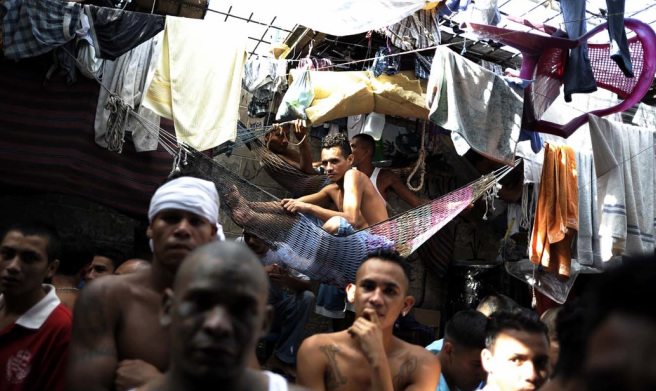Gang truce in El Salvador could signal lasting peace

by Tom Lawson The streets of some of the toughest barrios are quieter than they have been in years – a disquieting tranquility, residents say, because it has come from a truce no one believed possible between two of the country’s most violent rival gangs. Hopes are growing for lasting peace after what has now been a nine month truce, agreed in March 2012 by two of El Salvador’s most prominent rival gangs,18th Street and the Mara Salvatrucha-13. Both gangs wanted an end to the ongoing violence in the country. The country had one of the world’s highest homicide rates, with an average of 14 a day. Since the truce, this has dropped to an average of five a day. For over a decade the El Salvador government has attempted, without success, to tackle the violence caused by the country’s 64,000 gang members. Taking a hard stance, the government deployed the army to control the country’s prisons and created a law that made it illegal to be a gang member. Despite these measures the trouble continued, and in 2011 the UN ranked El Salvador as one of the world’s most violent nations not at war. The government initially distanced itself from the truce, but is now supporting the negotiations and plans to bring on board other political parties to gain the support of the public, civil societies, and religious groups. It also wants to address the economic and social roots of the problem, including marginalization, poor education and limited economic opportunities. “Our conclusion is that the crime is only an expression of a much deeper social problem,” says Raul Mijango, who, as a respected former legislative deputy and ex-guerrilla who fought El Salvador’s military regime during the civil war, helped broker the deal. Some see the truce as a beginning of a new era. From a prison classroom, with his homeys –what the gang members call each other – looking on, Carlos Mojica speaks about the future where gangs themselves could become part of the solution. “It’s time to transform the nature of the gang,” he says. “This is no longer a truce. The fundamental objective of this process is to achieve a definitive pacification.” Story from Positive News UK |
|



